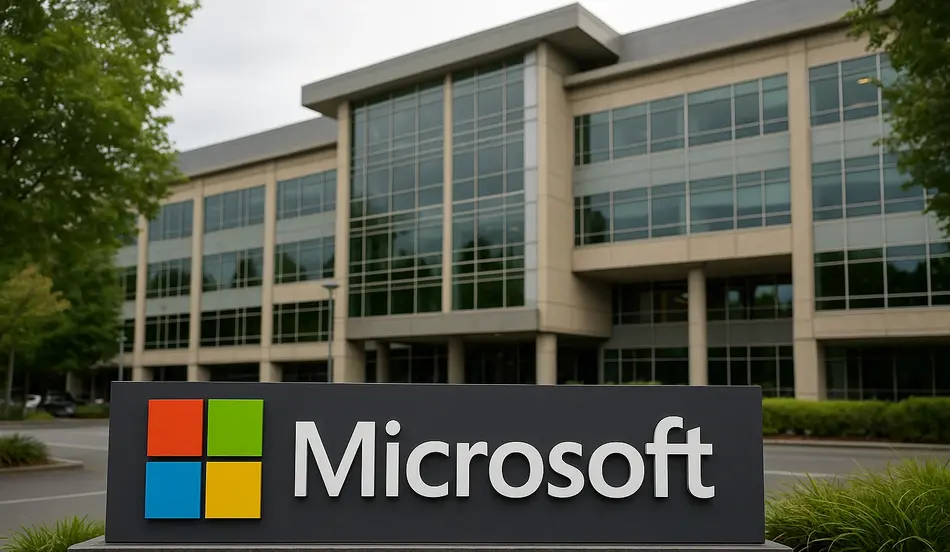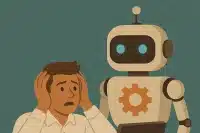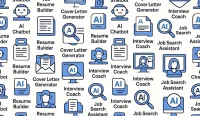Microsoft’s announcement of 9,000 additional layoffs signals a profound transformation in the tech industry as AI coding assistants revolutionize software development workflows. This second wave of major cuts highlights how the AI impact on tech industry jobs is rapidly accelerating, creating a stark contrast between companies reducing traditional coding positions and those aggressively hiring AI talent. With coding assistants becoming the fastest-growing software category this year and every major tech company launching their own versions, the fundamental nature of software development careers is being reshaped before our eyes.
The AI Revolution in Tech Workforces
Microsoft’s Strategic Workforce Reduction
Microsoft’s decision to cut 9,000 workers represents more than just typical corporate cost-cutting—it signals a fundamental shift in how the company approaches software development. The tech giant isn’t merely launching AI coding products; it’s actively restructuring internal workflows around these new capabilities, demonstrating confidence that AI can effectively replace or augment significant portions of their development teams.
This strategic realignment comes despite Microsoft’s impressive financial performance, with stock prices up 16% this year alone and a remarkable 150% increase over the past five years. The company clearly views this transition as essential to maintaining competitive advantage in an AI-transformed landscape, even at the cost of significant workforce disruption.
Coding Assistants: The Fastest Growing Software Category
The AI impact on tech industry jobs is being driven by the explosive growth of coding assistants, which have emerged as the fastest-expanding software category this year. These tools don’t simply help developers write code more efficiently—they fundamentally transform the development process by automating increasingly complex programming tasks that previously required specialized human expertise.
Major tech companies have recognized this shift, with Google being the latest to launch their own coding assistant. This industry-wide adoption indicates a consensus that AI-powered development tools represent the future of software creation, with significant implications for workforce composition and required skill sets.
Contrasting Approaches to AI Talent Acquisition
Microsoft’s Reduction vs. Meta’s Expansion
A fascinating dichotomy has emerged in how tech giants are responding to the AI revolution. While Microsoft is actively reducing its traditional workforce, Meta has taken the opposite approach by aggressively expanding its AI talent pool. Meta’s investment of nearly $3 billion to acquire ten elite AI researchers demonstrates the premium being placed on specialized AI expertise.
This contrast highlights a critical strategic question facing tech companies: is it better to streamline existing workforces while integrating AI tools, or to heavily invest in acquiring top AI talent to develop proprietary capabilities? The answer likely depends on each company’s specific market position, existing technical capabilities, and long-term vision for AI integration.
The New Talent War: Racing for AI Expertise
The competition for elite AI talent has reached unprecedented levels, with compensation packages for top researchers now comparable to medium-sized corporate acquisitions. As one industry observer noted, “That’s how I think every big player is going to think about how can I get the smartest people in AI to come and join the team.”
This talent war is creating a two-tier labor market within the tech industry—shrinking opportunities for traditional developers while generating extraordinary demand for those with specialized AI expertise. Companies are increasingly willing to offset reductions in conventional roles with substantial investments in AI specialists who can drive innovation in this rapidly evolving field.
Economic Implications of the AI Transformation
Productivity Gains vs. Job Displacement
The AI impact on tech industry jobs presents a classic economic dilemma: while productivity gains benefit companies and potentially the broader economy, they often come at the cost of significant worker displacement. Microsoft’s layoffs, despite the company’s strong financial performance, illustrate how even profitable enterprises are prioritizing AI-driven efficiency over workforce stability.
This transition raises important questions about the net impact on employment in the tech sector. While new roles will certainly emerge around AI development and implementation, the pace of job creation may not match the speed of displacement, particularly for mid-career professionals whose skills were developed in a pre-AI landscape.
Restructuring R&D Investments
Microsoft and Google, companies with traditionally high R&D expenditures, are now restructuring how those investments are allocated. As the observer in the transcript noted, “A lot of those coders, I think are going through this restructuring right now in terms of how their jobs are changing.”
This shift represents more than just changing job descriptions—it reflects a fundamental reorientation of how software is conceptualized and created. Companies are reducing investments in traditional development approaches while channeling resources toward AI capabilities that can potentially deliver exponential rather than incremental improvements in productivity.
Need Career Advice?
Concerned about how the AI impact on tech industry jobs might affect your career trajectory? Our expert advisors can help you develop the skills needed to thrive in this rapidly evolving landscape.
Get Personalized Career GuidanceAdapting to the New Tech Landscape
Evolving Skill Requirements for Developers
As AI increasingly automates routine coding tasks, the skills most valued in developers are rapidly evolving. Technical professionals must now develop expertise in prompt engineering, AI system integration, and higher-level architectural thinking that complements rather than competes with AI capabilities.
The most successful developers in this new landscape will likely be those who can effectively collaborate with AI tools, focusing their efforts on areas where human creativity, contextual understanding, and ethical judgment remain superior to automated alternatives. This represents a significant shift from traditional coding-centric skill sets toward a more holistic approach to software development.
Corporate Adaptation Strategies
Companies across the tech industry are developing varied strategies to navigate this transition. Some are following Microsoft’s approach of significant workforce reduction coupled with workflow transformation, while others are maintaining larger development teams but retraining them to work effectively alongside AI tools.
The optimal strategy likely depends on factors including company size, market position, and specific technical domains. Smaller companies may benefit from leveraging AI coding assistants to achieve capabilities previously requiring much larger teams, while enterprises with complex legacy systems may need to maintain substantial human expertise to manage integration challenges.
Market Response to AI-Driven Restructuring
Investor Confidence in AI Transformation
Despite the short-term disruption of layoffs, Microsoft’s stock performance suggests strong investor confidence in the company’s AI-focused strategy. The 150% price increase over five years and continued strong performance in 2024 indicate that markets view workforce reductions as a necessary step toward greater efficiency rather than a sign of weakness.
This investor response creates powerful incentives for other tech companies to pursue similar strategies, potentially accelerating the AI impact on tech industry jobs across the sector. When markets reward companies for AI-driven restructuring, executives face strong pressure to follow suit regardless of the human costs involved.
Long-term Industry Transformation
The current wave of layoffs and restructuring likely represents just the beginning of a fundamental transformation in how software is developed and maintained. As AI coding assistants continue to improve, their capabilities will expand from assisting human developers to potentially replacing them for increasingly complex tasks.
This evolution suggests the tech industry may be moving toward a model where smaller teams of highly specialized professionals oversee AI systems that handle the majority of actual code production. Such a shift would represent the most significant change in software development practices since the industry’s inception.
Hiring AI Talent? Post Jobs for Free with WhatJobs
Looking to recruit specialists who understand the AI impact on tech industry jobs? Connect with qualified candidates who can help your company navigate this technological transformation.
Post Your Job OpeningsThe Future of Tech Employment
New Career Paths in an AI-Dominated Industry
While traditional software development roles may decline, the AI revolution is creating entirely new career paths. Positions in AI model training, prompt engineering, AI ethics oversight, and human-AI collaboration design are emerging as growth areas that didn’t exist just a few years ago.
These new roles often require hybrid skill sets combining technical knowledge with domain expertise, communication abilities, and ethical judgment. Educational institutions and professional development programs are racing to develop curricula addressing these emerging needs, though the rapid pace of change makes it challenging to predict exactly which skills will be most valuable in the coming years.
Balancing Innovation and Workforce Stability
The tech industry faces a significant challenge in balancing the pursuit of AI-driven innovation with considerations of workforce stability and social responsibility. While companies have clear financial incentives to reduce headcount through AI implementation, widespread displacement could potentially create broader economic disruptions and public backlash.
Finding sustainable approaches that capture the benefits of AI while providing viable transition paths for affected workers represents one of the most important challenges facing tech industry leaders and policymakers. The decisions made during this critical period will shape not just individual companies but the entire relationship between technology, work, and economic opportunity.
FAQ: AI Impact on Tech Industry Jobs
How is AI specifically changing software development jobs?
The AI impact on tech industry jobs is most evident in software development, where coding assistants are automating many tasks traditionally performed by human programmers. These tools can generate code based on natural language descriptions, debug existing code, and even propose architectural improvements. As a result, companies need fewer traditional developers for routine coding tasks but more specialists who can effectively prompt, direct, and integrate with AI systems. The most successful developers will be those who adapt to work alongside AI tools, focusing on areas where human creativity and contextual understanding remain superior.
Which tech companies are most aggressively implementing AI in their workflows?
Microsoft currently leads major tech companies in aggressively implementing AI throughout their development workflows, as evidenced by their recent announcement of 9,000 additional layoffs despite strong financial performance. Their approach involves not just developing AI tools but fundamentally restructuring internal processes around these capabilities. Google has similarly invested heavily in AI coding assistants while evaluating their workforce needs. In contrast, Meta has taken a different approach by heavily investing in acquiring elite AI talent rather than immediately reducing their existing workforce, suggesting they see human expertise as crucial to their AI strategy.
What skills should tech workers develop to remain relevant as AI transforms the industry?
To remain relevant amid the AI impact on tech industry jobs, professionals should develop expertise in prompt engineering (effectively directing AI systems), AI integration (connecting AI capabilities with existing systems), and higher-level architectural thinking that complements rather than competes with AI. Additionally, skills in areas where humans maintain advantages—ethical judgment, creative problem-solving, stakeholder communication, and domain-specific contextual understanding—will become increasingly valuable. Technical workers should also cultivate adaptability and continuous learning habits, as the specific skills in demand will continue evolving as AI capabilities advance.
How might the economic benefits of AI in tech be distributed between companies and workers?
The economic benefits of AI in the tech industry currently appear to be flowing primarily to companies and their shareholders, as evidenced by Microsoft’s strong stock performance despite significant layoffs. This pattern raises important questions about equitable distribution of gains from technological advancement. While some workers—particularly those with specialized AI expertise—are seeing unprecedented compensation, many others face displacement with uncertain transition paths. Without deliberate policies to support affected workers through retraining and career transitions, the AI revolution risks exacerbating existing economic inequalities rather than creating broadly shared prosperity.
What might the long-term impact of AI be on total employment in the tech sector?
The long-term AI impact on tech industry jobs remains uncertain, with competing factors at play. While AI will certainly automate many existing roles, it will also create new positions and potentially enable entirely new categories of products and services. Historical technological revolutions have ultimately created more jobs than they eliminated, though often with significant transitional disruption. The net effect will depend partly on policy choices, educational system responses, and how companies choose to implement AI capabilities. What seems clear is that the nature of tech employment will fundamentally change, with fewer routine development positions but growing demand for roles involving AI oversight, customization, and ethical governance.




